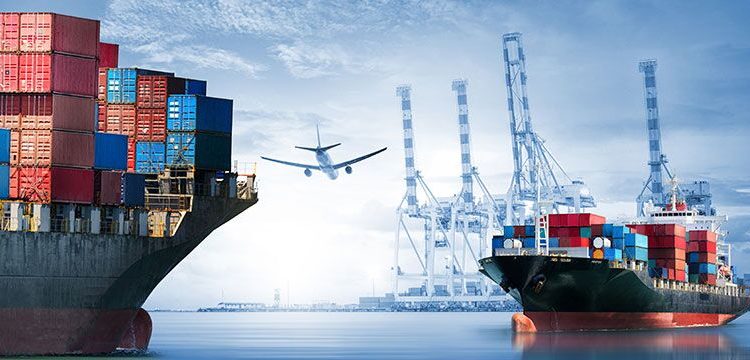
Burgas Port is one of Bulgaria’s largest and most important maritime hubs, located on the Black Sea. It serves as a key gateway for international trade, handling a wide variety of cargo, including oil products, chemicals, and bulk materials.
As with any major port, there are a set of legal requirements that all shipping companies, vessel operators, and stakeholders must adhere to when operating at Burgas. This article provides an overview of the Burgas port regulations and the essential elements of shipping compliance according to maritime law.
Overview of Burgas Port
Burgas is a significant player in Bulgaria’s shipping industry and has a strategic location that links Europe to markets in the Middle East, Asia, and Africa. The port operates under strict regulations, ensuring the safety, security, and efficiency of maritime operations.
Understanding these regulations is crucial for any company engaged in shipping activities in Burgas to ensure smooth operations and avoid legal complications.
Key Legal Requirements for Shipping at Burgas Port1. Port Authority and Maritime Law Compliance
Burgas Port is regulated by the Bulgarian government, particularly the Ministry of Transport and the Maritime Administration. The Burgas Port Authority oversees all activities, ensuring compliance with national and international maritime law.
All shipping companies must adhere to the regulations set forth by the port authority, which include vessel inspections, safety protocols, and the use of port facilities.
All vessels calling at Burgas must comply with International Maritime Organization (IMO) standards, including those related to safety, environmental protection, and security.
The IMO’s International Convention for the Safety of Life at Sea (SOLAS) and the International Convention for the Prevention of Pollution from Ships (MARPOL) are particularly relevant for ships operating in Burgas.
Why it matters:
Failure to comply with IMO standards or local port regulations can result in fines, vessel detainment, or other legal actions by Bulgarian authorities.
2. Environmental Regulations and Sustainability
Environmental protection is a top priority at Burgas Port. Ships docking at the port are required to adhere to international environmental standards, especially those aimed at minimizing pollution. Compliance with MARPOL, which regulates waste disposal, oil discharge, and emissions, is mandatory for vessels calling at the port.
The port has strict policies on ballast water management, waste disposal, and oil spill prevention to protect the Black Sea’s fragile ecosystem. Ships that do not meet these environmental standards may face penalties or be denied entry into the port.
Why it matters:
Environmental compliance is crucial to avoid costly fines and legal repercussions, as well as to ensure that shipping operations are conducted sustainably.
3. Security and Safety Compliance
Burgas Port operates under the International Ship and Port Facility Security (ISPS) Code, a key international maritime security standard. This regulation ensures the safety of both vessels and port facilities. It involves ship security plans, security assessments, and port facility security checks.
Port users must also comply with Bulgarian safety regulations, including fire safety protocols, cargo handling procedures, and emergency response measures. Regular safety inspections and drills are part of the port’s operations to ensure that all vessels comply with safety standards.
Why it matters:
Maintaining high security and safety standards prevents accidents, cargo damage, and ensures the well-being of crew members, protecting the integrity of the shipping operation.
4. Customs and Documentation Requirements
Burgas Port, being a key entry point into the European Union, requires all vessels and cargo to comply with EU customs regulations. This includes providing accurate documentation for the cargo being imported or exported.
Bills of lading, certificates of origin, and cargo manifests must be filed with Bulgarian customs authorities before the vessel arrives at the port.
Failure to comply with customs regulations can lead to delays, fines, or confiscation of goods. It is important for shipping companies to work closely with customs agents to ensure that all paperwork is in order before arrival.
Why it matters:
Accurate documentation and customs compliance are essential for the efficient movement of goods and to avoid any legal issues that could disrupt the shipping process.
5. Port Fees and Tariffs
Shipping companies using Burgas Port must be aware of the port’s fee structure, which includes charges for services such as berthing, pilotage, cargo handling, and tug assistance. These fees are determined based on the vessel’s size, type of cargo, and duration of stay at the port.
The port publishes its tariff schedule annually, and shipping companies are required to pay these fees in a timely manner to avoid disruptions to their operations.
Why it matters:
Understanding the fee structure allows for better budgeting and ensures that shipping operations at Burgas Port run smoothly without unnecessary delays.
6. Inspection and Quarantine Regulations
Ships arriving at Burgas Port are subject to inspections by Bulgarian port authorities. These inspections cover a range of factors, including ship safety, environmental compliance, and customs documentation. Quarantine regulations are also enforced, particularly for ships arriving from areas with contagious diseases or for certain types of cargo.
Ships that fail to meet the inspection requirements may be quarantined or delayed, causing potential disruptions to their schedules.
Why it matters:
Meeting inspection and quarantine requirements ensures that vessels can complete their operations without unexpected interruptions.
Navigating the Burgas port regulations is essential for ensuring compliance with both Bulgarian and international maritime law. From environmental protection and security measures to customs documentation and port fees, every aspect of shipping compliance plays a vital role in the efficient operation of the port.
Shipping companies that invest in understanding and adhering to these regulations will benefit from smoother operations, reduced risk of legal penalties, and successful project completion.
Whether you are an international shipping company or a local operator, staying compliant with the legal requirements at Burgas Port is crucial for long-term success in the maritime industry. There are a lot of areas in which you can develop – law, PR and marketing, Master of Business Administration, etc.




